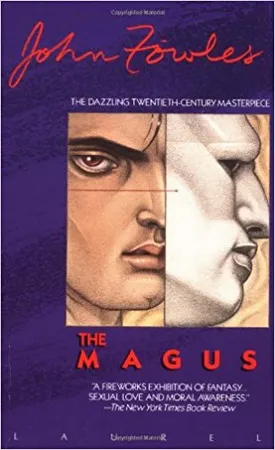The Magus, written in 1965 by English novelist and poet John Fowles, is a complex, thought-provoking exploration of individual identity, freedom and destiny. As with most of Fowles' works, The Magus is a layering of intellectual, psychological and emotional insight, a brooding meditation on the powers of illusion, deception and manipulation and an examination of the qualities in a person that inform their behavior.
The story takes place on a Greek island, a place evoking mystery and mystery out of time. Nicholas, an English educator looking to escape the emotional trauma of a failed relationship, is delighted to accept a position teaching there. But things are not as they seem. Soon after his arrival, he finds himself being tested, manipulated and challenged by a mysterious stranger known only as The Magus.
The Magus uses moments of startling revelation and surprise to build a portrait of Nicholas. He moves Nicholas through increasingly convoluted situations in which Nicholas must find his way to moral correctness and freedom within a built-in system of free-will choice and consequence.
The Magus sets Nicholas in scenes of bewilderment, confusion and despair. In each, he must find within himself the courage and insight needed to reveal things hidden, evoked and accessed, consciously and unconsciously, by his own reflections and memories.
Nicholas’ life, marriage and relationships are consistently re-invented and challenged as he grapples with disorienting reality and the intricately creative illusions of The Magus. As the story unfolds, Nicholas travels through a deep and sometimes painful journey, capturing a tenacious and beautiful spirit he can offer himself and others.
Fowles captures the kind of grip The Magus has on his subject in a way that’s both mesmerizing and somehow unexpected. He paints a profound picture of the human struggle between understanding and ignorance, the illusion and reality of indulgence.
Underneath the layer of intrigue, The Magus is about the evolution of consciousness, about learning to give ourselves permission to question what is being told, to think for ourselves and to respect the power of taking control of our lives. It’s a sophisticated and thought-provoking work, punctuated by moments of powerful symbolism.
The Magus system of manipulation and devious game-playing frequently rises to the level of the sublime and unpredictable. It’s an unsettling but inspiring story that explores self-awareness and the power of self-determination. It’s a book that will linger in the mind long after it’s put down.

